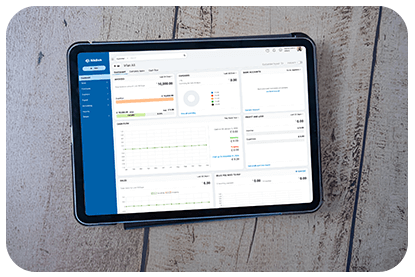19 April 2024
How Much to Charge for Bookkeeping Services: A Pricing Guide
When it comes to pricing your online bookkeeping services, there is no one-size-fits-all solution. Several factors can influence your rate, such as the complexity of the services provided, the size of the business, and your level of expertise. In this guide, we’ll walk through the factors to consider and how much to charge for bookkeeping services.
Understanding the Scope of Bookkeeping Services
Online Bookkeeping services can vary widely depending on what’s needed. At its core, bookkeeping involves tracking financial transactions, managing accounts, and ensuring accurate financial records. However, the specifics may differ based on the needs of the business.
Online bookkeeping often requires additional tools and software, which can impact the pricing. Clients may expect services like invoicing, payroll, tax preparation, or even customized financial reports. The more comprehensive the accounting and bookkeeping services, the higher the pricing will typically be.
Factors That Affect Bookkeeping Service Pricing
1. Type of Services You Offer
The type of bookkeeping and accounting services you offer is one of the most significant factors affecting your pricing. Basic services, such as data entry and reconciliations, tend to cost less than more specialized tasks like tax filings, payroll, or preparing for audits.
If you offer online bookkeeping, where everything is managed remotely using cloud-based tools, this may also influence the pricing. Online bookkeeping often comes with added benefits like automation, making it more efficient and sometimes more affordable for businesses.
2. Your Level of Expertise
If you’re an experienced accountant with certifications, you can charge higher rates for your services. Clients often prefer professionals with industry knowledge and expertise to ensure accurate financial management. For businesses requiring accounting and bookkeeping services with more complex financial needs, an experienced professional will be in high demand.
3. The Size of the Client’s Business
The size of the business also affects how much to charge for bookkeeping services. Larger businesses often have more complex financial operations, requiring more detailed work. In this case, you might charge higher fees. On the other hand, smaller businesses or solo entrepreneurs may need basic bookkeeping services, allowing you to offer more affordable rates.
4. Frequency of Service
Do your clients need bookkeeping and accounting services weekly, monthly, or just quarterly? The more frequent the service, the higher the cost. Regular monthly bookkeeping services may involve ongoing work, including reconciling accounts, updating records, and ensuring tax compliance. On the other hand, less frequent engagements might be charged at a different rate.
5. Location of Your Clients
Even if you’re offering online bookkeeping, the location of your clients can influence the price. For instance, businesses in areas with a higher cost of living, such as big cities, may be willing to pay higher fees for quality bookkeeping services. In contrast, small towns or rural areas may have tighter budgets for these services.
Pricing Models for Bookkeeping Services
There are different pricing structures you can consider when determining how much to charge for bookkeeping services.
Hourly Rates
Charging by the hour is one of the most common ways to price bookkeeping and accounting services. Rates can range from $30 to $100 per hour, depending on your experience, location, and the complexity of the work. If you’re just starting out, you may charge on the lower end, but as you gain experience, you can gradually increase your rates.
Flat Fees
For more predictable costs, many clients prefer flat-rate pricing. This is where you set a fixed monthly fee based on the services you offer. For example, you might charge a flat monthly rate of $200 for basic online bookkeeping, or a higher rate for comprehensive services, including payroll and tax preparation.
Package Deals
You can also offer pricing packages for your bookkeeping services. For example, a basic package may include monthly reconciliations and bank statements, while a premium package may include tax filing, payroll, and detailed financial reporting. Offering packages can give clients clarity on pricing and may encourage them to purchase additional services.
Retainer Fees
For clients who need ongoing, consistent bookkeeping and accounting services, retainer fees might be the best approach. With a retainer, clients pay a fixed amount each month to secure your services. This method ensures you have steady income while providing clients with reliable service.
How to Determine the Right Rate for Your Bookkeeping Services
To figure out how much to charge for online bookkeeping or traditional bookkeeping services, it’s essential to balance competitive pricing with the value you provide.
Here are some tips for determining your rate:
Know Your Value: Don’t undervalue your services. If you offer quality, reliable accounting and bookkeeping services, clients will be willing to pay for your expertise.
Research Market Rates: Look at what other professionals in your area or niche are charging. This will help you set a competitive and fair rate.
Consider Your Costs: Make sure your rates cover any expenses you incur to run your business, including software, tools, and other overhead.
Read More About: How Bookkeeping Services Can Save You Time and Money
Conclusion
Setting the right price for bookkeeping services is crucial to maintaining a successful business. By considering the factors that affect your pricing, such as the services offered, the complexity of tasks, and your experience, you can establish fair and competitive rates. Whether you offer online bookkeeping or traditional services, understanding the needs of your clients and the market will help you determine the most suitable pricing structure.




